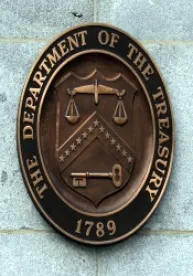In recent weeks, the U.S. Department of Treasury, Office of Foreign Assets Control (“OFAC”) has updated the sanctions regulations it administers against Libya and North Korea. These recently implemented sanctions continue OFAC's trend towards precise, targeted sanctions; moreover, the way in which OFAC amended its sanctions on North Korea could have implications for U.S. sanctions on Cuba.
North Korea
In November 2010, OFAC promulgated the North Korea Sanctions Regulations (the "NKSR"), 31 C.F.R. pt. 510, pursuant to the International Emergency Economic Powers Act (“IEEPA”), 50 U.S.C. § 1701 et seq. The United States has maintained sanctions against North Korea for many years; until recently, those sanctions existed under the authority of the Trading With the Enemy Act ("TWEA"). See 50 U.S.C. App. 1 et seq. In June 2008, however, by Proclamation 8271, President George W. Bush terminated restrictions on North Korea issued under the authority of TWEA. See 73 Fed. Reg. 36,785 (June 26, 2008). At the same time, pursuant to Executive Order 13466, President Bush continued most sanctions on North Korea under IEEPA. See 73 Fed. Reg. 36,787 (June 26, 2008).
While the 2008 regulatory procedure eased U.S. sanctions on North Korea generally, the switch in the statutory basis for U.S. sanctions on North Korea had several other significant consequences. For one, U.S. jurisdiction under TWEA extends to any entity, regardless of nationality, that is owned or controlled by a U.S. person; U.S. jurisdiction under IEEPA does not extend to such entities. The jurisdictional reach of U.S. sanctions on North Korea sanctions has therefore been reduced in an important way: a non-U.S. entity is no longer subject to U.S. jurisdiction when it conducts transactions with or involving North Korea merely because the entity is owned or controlled by a U.S. person.
Although jurisdiction over potential North Korea sanctions violations has been reduced, because steeper civil monetary penalties are authorized under IEEPA than are authorized under TWEA, potential civil monetary penalties for violating sanctions on North Korea have been increased. In addition, under the Export Administration Regulations, a violation of IEEPA (but not TWEA) is a specifically enumerated basis for an administrative denial of U.S. export privileges. See 15 C.F.R. § 766.25.
To expand the scope of the NKSR, in April 2011, President Obama issued Executive Order 13570, which prohibits the importation into the United States of any goods, services, or technology from North Korea. See 76 Fed. Reg. 22,291 (Apr. 20, 2011). In conjunction with existing restrictions against North Korea, including an arms embargo and prohibitions against activities deemed to support the government of North Korea, the Order furthers both U.S. unilateral efforts to curtail North Korea's nuclear proliferation efforts and multilateral initiatives (by explicit reference to United Nations Security Council Resolutions).
More recently, in June 2011, OFAC announced amendments to the NKSR to incorporate Executive Order 13570. See 76 Fed. Reg. 35,740 (June 20, 2011). At the same time, OFAC terminated 31 CFR Parts 500 and 505, both of which previously authorized certain restrictions on North Korea. See 76 Fed. Reg. 35,739 (June 20, 2011). The end result is that the NKSR are similar, though not identical, to U.S. sanctions on North Korea as they existed under TWEA.
Libya
On July 1, 2011, OFAC issued the new Libyan Sanctions Regulations (the "LSR"). 31 CFR pt. 570; see also 76 Fed. Reg. 38,562 (July 1, 2011).[1] The LSR are to enact Executive Order 13566, which President Obama promulgated in February 2011. See 76 Fed. Reg. 11,315 (Mar. 2, 2011). The LSR largely track that Executive Order, the focus of which is blocking property and financial interests of designated members and associates of the Qaddafi regime contributing to violence against civilians.
The LSR do include certain general licenses–for the provision of certain legal services and for certain transactions related to Libyan diplomatic missions in the United States that OFAC had authorized following President Obama's issuance of the Order. 31 C.F.R. §§ 570.506, 570.508). Interestingly, three other Libya general licenses authorized by OFAC since EO 13566 was promulgated are not incorporated in the LSR. Those general licenses relate to (i) transactions with third country Libyan-owned or –controlled banks, (ii) investment funds in which there is a blocked, non-controlling minority interest of the government of Libya, and (iii) certain transactions involving oil, gas, or petroleum products exported from Libya. Yet those three general licenses apparently remain available for U.S. persons, as they are still listed on OFAC's website.
Trends
We believe the manner in which the NKSR and LSR were implemented, and the activities they cover, are notable for the incremental approach OFAC has taken. This approach suggests that OFAC continues to view country-wide sanctions as a blunt tool useful only in limited situations. The targeted way in which OFAC also has expanded sanctions against certain Syrian parties, without introducing comprehensive sanctions against the country, is consistent with the approach taken as to both North Korea and Libya.
Since sanctions on North Korea are now authorized under IEEPA but not TWEA, Cuba is the lone remaining country against which the United States maintains sanctions pursuant to TWEA. This situation raises the question of whether the Cuba sanctions may also be re-visited under IEEPA. There has been periodic easing of U.S. sanctions on Cuba since President Obama took office. Perhaps the re-structuring of the North Korea sanctions will prove to be a one-time anomaly. We think, however, there is some chance that the revisions of sanctions on North Korea will provide the blueprint for re-structuring U.S. sanctions on Cuba.



 />i
/>i

